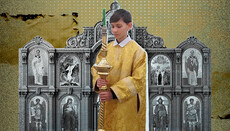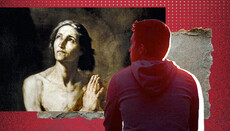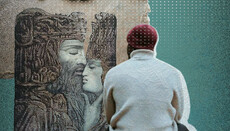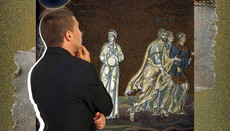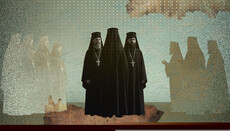Should the Church educate the people: A response to Metropolitan Theodosiy
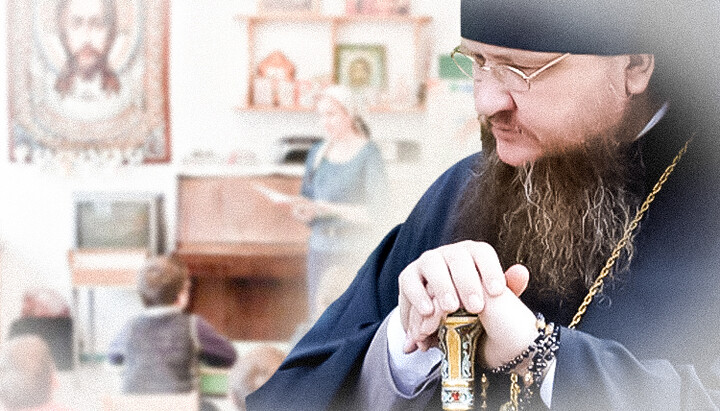
Met. Theodosiy spoke about the reasons for the persecution of our Church, noting that, in many ways, we ourselves are to blame. What is the solution? Is it possible to change the current situation of the UOC?
Recently, Metropolitan Theodosiy of Cherkasy and Kaniv of the UOC has given a sermon that sparked lively discussion among the faithful. In his address, he compared the Church to a mother who has been forgotten and driven out of her own home by her children. Some found this comparison deeply moving (because they saw themselves in the bishop's criticism), while others, on the contrary, said, "Finally, someone has reflected the current state of the Ukrainian Church and Ukrainian society."
The bishop began with an important topic – the Church's responsibility to society. He urged the faithful to reflect on why the UOC is facing such persecution and pressure today. In his address, the Metropolitan directly pointed out that the root of these problems lies with the believers themselves. He said, “This is our great failure. And we have no one to blame for the fact that we are being beaten, persecuted, and banned. We did not educate civil society.”
And here, the bishop is completely and undeniably right.
Because, in reality, unlike the Orthodox Church, other denominations (especially the UGCC) have actively engaged in the education of Ukrainians. For example, graduates of the Ukrainian Catholic University, founded by Greek and Roman Catholics, have achieved great success in the fields of journalism, business and public service. These people today influence the minds and worldviews of Ukrainians. Meanwhile, the Orthodox Church missed this opportunity: “We built (churches) and celebrated… Yes, it was necessary to build and celebrate, but we also should not have forgotten about this (education),” the bishop emphasized.
He compared the current persecution of the Church to the way ungrateful children drive their own mother out of her home, despite the fact that she has dedicated all her life to their upbringing: “Now we are being driven out of our own home, just as an ungrateful son or daughter would drive an old mother out of the house she spent her whole life building. This is how the historical Church of our people, which shaped them, is now being pushed out like an elderly mother.”
But in the bishop's view, the blame for this lies with the representatives of the Church. We, as its members, have failed to properly raise the new generation, and we have not succeeded in passing on spiritual values to them. “We thought things would somehow work themselves out… But this has happened. And we need to repent for it,” he said.
Nevertheless, Metropolitan Theodosiy is not calling for protest or aggression. He says it is too late to argue and shout: “It's too late. This should have been done earlier.” Instead, he calls for prayer, comparing it to a mother’s prayer for her wayward children: “A mother will not justify her children’s mistakes, but she will not scold them either. After repentance, she will pray. If a mother prays for her child with love, she will surely bring them back.”
He also believes that even if the Church is persecuted, beaten and driven out, “these are still our people, and we bear responsibility for them before God”.
The bishop concluded by saying that the Lord will save the people through suffering and trials. And if the Church prays diligently, people will gradually realise their mistake and return to their spiritual roots: “If we pray, the people will come to their senses and return to their mother – the historical Church.”
And here, we do not wish to argue with the bishop but rather complement his words by expressing our own position.
The timeless duty of the Church is to teach and educate the people
Yes, the Church must pray for the people. Prayer is its main weapon. But… it is not the only one. For centuries, the Church has played a key role in shaping the moral and spiritual compass of society. It was the foundation not only of religious life but also of the cultural and educational upbringing and development of the people. The Church has always, under all circumstances, taught, enlightened, and educated. Even in pagan societies, during the persecutions by Roman emperors, the Church opened schools, carried out extensive catechetical work and gave the world not only countless martyrs and holy ascetics but also pillars of theology and faith. It is enough to recall Saint Dionysius the Areopagite, Justin the Philosopher, Athanasius the Great, and many others. After all, even the apostles preached in societies that were not predisposed to them.
The Apostle Paul explained in detail the challenges he faced while preaching the Gospel: “I have been constantly on the move. I have been in danger from rivers, in danger from bandits, in danger from my fellow Jews, in danger from Gentiles; in danger in the city, in danger in the country, in danger at sea; and in danger from false believers. I have labored and toiled and have often gone without sleep; I have known hunger and thirst and have often gone without food; I have been cold and naked.” (2 Corinthians 11:26-30). Did all of this stop the apostle? Did he say that, because of these difficulties, the only thing left to do was pray? No. He continues by writing, “Besides everything else, I face daily the pressure of my concern for all the churches. Who is weak, and I do not feel weak? Who is led into sin, and I do not inwardly burn?” And elsewhere he adds: “We are oppressed everywhere, but we are not constrained; we are in desperate circumstances, but we do not despair.” This is exactly how we should act as well—despite being in difficult circumstances, we must not despair but continue (or begin, if we are talking about education) our work.
Throughout history, we see many examples of the Church fulfilling the role of spiritual and moral teacher for society. Byzantium is one of the brightest examples. Think of the famous school of Saint Patriarch Photius or the scholarly brotherhood whose member was St Gregory Palamas.
However, there have also been times when the Church was hardly involved in the education of the people. This is not about a priest's sermon in church but about the systematic work that Metropolitan Theodosiy speaks of. But does this mean that in the current situation, nothing can be done?
Is the people lost to the Church?
In his sermon, the bishop expressed regret that the Church has not done enough to bring up civil society, unlike the Ukrainian Greek Catholic Church, which has actively worked with youth. However, it would be wrong to say that the people is already lost to the Church. Because the people is not homogeneous. It is not a fixed entity. The people consists of different generations – from infants to the elderly. And while it may be that all we can do for one generation is pray, with another generation, we must work as actively as possible.
History shows that even in the most difficult periods, when society seemed to completely turn away from the Church, there were always ways to restore its influence. For example, even during Soviet rule, when atheism was the state ideology, the Church did not disappear. On the contrary, even under brutal persecution and repression, it continued to carry out its mission among believers, passing on its spiritual and intellectual wealth and preparing the ground for future revival. Even at that time, there were figures such as Metropolitan Anthony of Sourozh, Father Dmitry Dudko, and Archpriest Alexander Men. The Church was able to influence great thinkers such as Sergey Averintsev, Alexey Losev, Vladimir Bibikhin, Mikhail Bakhtin, Dmitry Likhachov, Vladimir Toporov, Olga Sedakova, and many others. If the Church had only prayed, there would not have been the spiritual explosion that followed the collapse of the USSR, when a huge number of people, especially from the younger generation, returned to their spiritual roots. This shows that the people are never lost to the Church, and there is always potential for their return to the path of spiritual enlightenment. We just need to work tirelessly in this direction.
Moreover, the Church must always continue its mission – to care for every person, especially those who are lost. We believe that today, in a rapidly changing world, young people desperately need moral and spiritual guidance. And it is the Church that must become the institution that takes on the task of educating young people, helping them form the right worldview.
Remember that modern science began with the Church establishing schools and academies where young people received not only religious knowledge but also the foundations of science, art and culture. This education enabled them to become not only believers but also cultured and educated members of society.
This means that the Church must once again assume this role today.
But what can be done specifically?
To correct the situation and restore the Church's influence on society, especially on youth, it is important to act actively in several areas. Here are some steps that can be taken now (considering the current situation).
1. The UOC has been expelled from schools and educational institutions. Therefore, we need to create such institutions at churches. We urgently need educational centres within our parishes. Young people are eager to learn, and the Church must offer them the opportunity to study – not just spiritual subjects but also modern disciplines such as philosophy, history and literature. Clearly, such centres cannot be established in every parish, but there should be at least a few per eparchy. Naturally, they need financial support, and the bishop must direct his efforts toward finding resources for these educational centres. Let's remember that according to Canon 58 of the Holy Apostles, “A bishop or presbyter who does not care for the clergy or the people, and does not instruct them in piety, shall be deposed. If he continues to be negligent and idle, let him be removed.”
2. The bishop should encourage those priests and laity involved in educational activities. Not by awarding miters and crosses, but through real support – advice, financial help and people. By the way, for more effective distribution of financial resources, every bishop should have a steward from the clergy (according to Canon 26 of the Holy Apostles) “in charge of church property by the will of his bishop: so that the church administration is not without witnesses, and the church property is not squandered, and the priesthood is not subjected to reproach”.
3. Priests can and should participate in public discussions. Today, young people are actively discussing moral, social and political issues. Through social media, blogs and eparchy websites, the Church should be part of these discussions, offering its perspective on contemporary world problems. Priests and laity who are knowledgeable about current issues should receive support from church leadership. It's important to understand that modern technology offers a vast missionary platform that cannot be ignored. Eparchies should have active pages on all popular platforms, where they publish not only sermons but also interesting materials on spiritual life and intellectual development. These can take various forms: personal reflections on camera, interviews with bishops, priests and knowledgeable laity, lessons in faith, short videos about saints and church history, theology and present-day challenges.
4. Eparchies must organise youth events and support youth projects. Young people want to be part of something bigger, not just stand in a church or carry candles in the altar. They want to participate in socially significant projects. Therefore, volunteer programs, festivals and sports events must be organised, all combined with spiritual education.
5. Eparchies should support young leaders, giving them platforms to implement Orthodox projects.
6. Discussion clubs should also be organised. Young people like to ask questions and seek answers. The Church must offer spaces for open discussions. These could cover the most pressing topics, from the meaning of life to contemporary moral issues. The key is to create a space where questions can be asked, and thoughtful, deep answers can be provided. It's simple to organise: a room in the church, a few packets of cookies and tea. Believe me, it works very well.
7. It's essential to work with families. Families can be gathered for joint activities at the church, trips, and missionary discussions.
8. And most importantly: it's long overdue for the Church to have its own university at a national level. Yes, this requires people. But are we to believe that in the multi-million UOC there aren't people who could create a university and staff it with Orthodox educators? There are, we are sure. And resources and opportunities will be found. Because if the UOC can build a magnificent hospital with state-of-the-art equipment and excellent specialists, as was done at the Bancheny Monastery, then a university can also be built and maintained if desired.
So, while we agree with Metropolitan Theodosiy that for many years “we have been building and celebrating” but not educating the people, we believe that not all is lost. The clearest evidence of this is the fact that the highest hierarchs of our Church have finally begun to speak about the lack of educational initiative in the UOC. And we do hope that it will not be just mere talk.
